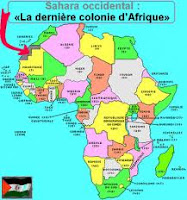Changing The World One Step at a Time
Western Sahara may be the forgotten country of the Arab Spring but Stefan Simanowitz takes hope from its latest victory in the European Parliament.
According to Noam Chomsky, the Arab Spring did not begin in Tunisia with the self-immolation of a market-seller, but instead can be traced back to the massive protest camp that appeared in Western Sahara in October 2010.
The camp, at Gdeim Izik, lasted for a month and attracted thousands of Saharawi protesters from across the territory. UN estimates based on satellite imagery suggest that at its height, the camp contained around 6,600 tents. Like the later demonstrators in Tunisia, Egypt, Libya and Syria, the people at Gdeim Izik were protesting against unemployment, high food prices and political disenfranchisement. But they were also protesting against the ongoing Moroccan occupation of their country, which began in 1976 when the Spanish colonisers departed.
Under international law, as set out in a 1975 Advisory Opinion given by the International Court of Justice, the people of Western Sahara have an inalienable right to self-determination. Following a 16-year war against the Moroccan occupation, a UN-brokered ceasefire promised the Saharawi people a referendum on self-determination. But over 20 years later it has still not taken place, leaving the Saharawi to live either in desolate refugee camps in the Algerian desert or under occupation in Western Sahara.
On the morning of 8 November, Moroccan forces arrived in force to dismantle the Gdeim Izik camp and were met with resistance. Violence erupted and there were reports from both sides of large numbers of injuries and fatalities. With international journalists and observers banned from the area, the details of what happened remain hard to establish but the incident attracted widespread attention internationally and across the region. In the immediate aftermath of the dismantlement of the camp there were violent clashes in the cities of El Laayoune and Dakhla, but the situation in Western Sahara soon settled.
Whether or not there is any direct causal link between what happened at Gdeim Izik and what followed across North Africa and the Middle East, the Arab Spring clearly represents an opportunity to break the deadlock in this most protracted of conflicts, and find a resolution that accords with international law. Although there has been no indication that Morocco intends to shift its policy on Western Sahara, and eight recent rounds of UN-sponsored informal talks have failed to make any progress, the Arab Spring has shown that the voice of a strong-willed people is difficult to suppress.
Whilst grassroots popular movements within Western Sahara are key to changing the political landscape in the country, international pressure is also vital. Western Sahara’s vast natural resources – in particular phosphates – may have resulted in complacency or complicity among the international community, but a recent landmark decision by the European Parliament to end a fisheries agreement that allowed European boats to fish Western Sahara waters, shows that economic interests do not always take precedence over political considerations.
The decision taken by MEPs on 14 December was an historic one. The Fisheries Partnership Agreement between the European Union and Morocco, signed in 2005, had officially expired at the end of February, and a one-year extension to the agreement was approved by a small majority in the Council of Ministers in March. However, pressure for the European Parliament to reject the extension had been building.
In November, both the parliament’s Budget Committee and the Development Committee recommended that the fisheries agreement be stopped and the 2010 publication of a confidential legal opinion showed that the European Parliament’s Legal Service viewed the fishing by European vessels in Western Sahara’s waters to be in violation of international law.
This view supported that of the UN Legal Adviser, Hans Corell, whose 2002 legal opinion for the UN Security Council on Western Sahara’s natural resources made clear that exploitation of the territory’s resources could only be considered legal if the Saharawi population were consulted and benefited. This consultation had not taken place and, according to human rights activist Aminatou Haidar speaking earlier this year, “The Saharawi do not benefit at all from this agreement. Instead it only intensifies their oppression.”
Under UN General Assembly resolution 1514 (XV), the natural resources of Western Sahara should belong to the Saharawi people. General Assembly Resolution 63/102 of 2008 called on member states to take “Legislative, administrative or other measures in respect of their nationals and the bodies corporate under their jurisdiction that own and operate enterprises in the Non-Self-Governing Territories that are detrimental to the interests of the inhabitants of those Territories, in order to put an end to those enterprises.” This has not been done, and despite many attempts to break the long-running diplomatic stalemate, progress towards a resolution of the conflict has been tortuously slow.
The rejection of the fisheries agreement by the European Parliament is unlikely to have any real economic impact on Morocco but its political significance is enormous. Not only does it send a clear message about the need to respect and uphold international law but it also demonstrates that a small group of committed activists can help change a situation no matter how deadlocked it
may seem.
Stefan Simanowitz is a writer, journalist and broadcaster. He chairs the Free Western Sahara Network. Visit www.freesahara.ning.com



